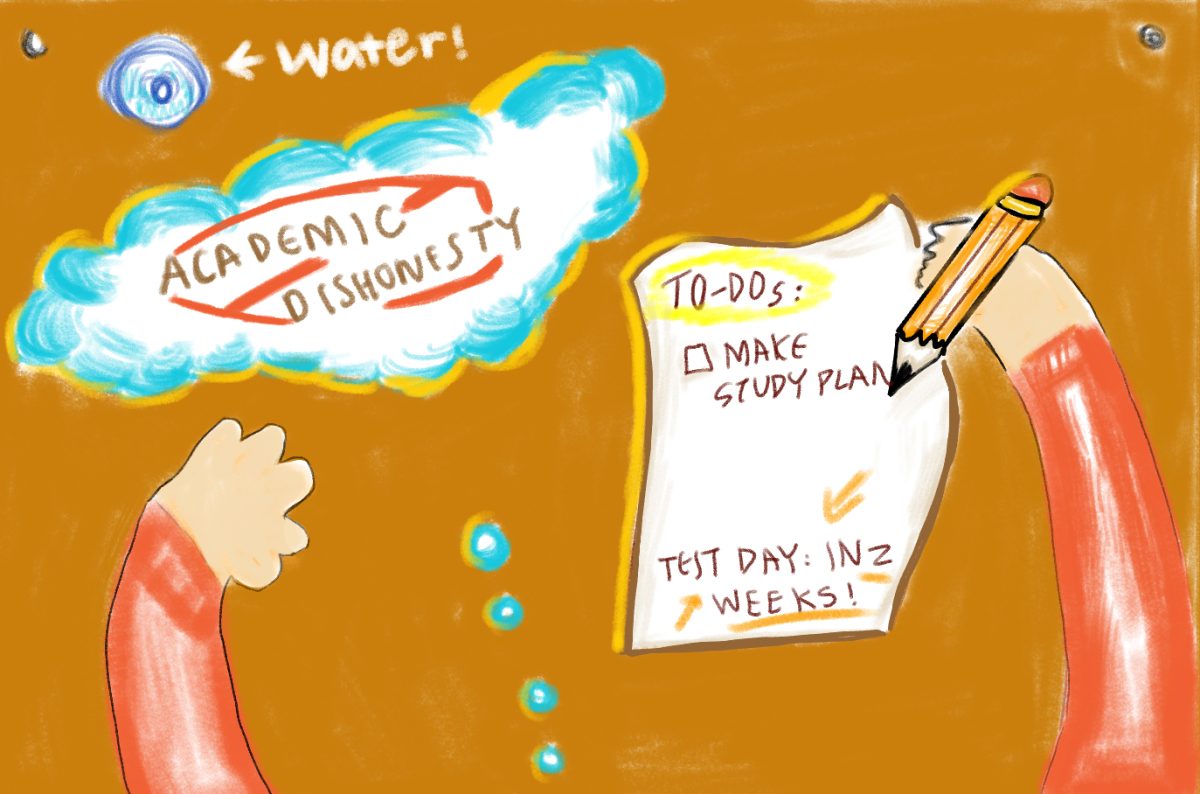Don’t cheat. Students hear these two words often, whether it may be from a teacher or an academic honesty. Along with the consequences of being reported to the school administration or possible suspension, students should focus on the learning process rather than the end result in order to avoid academic dishonesty.
Academic dishonesty, which includes copying homework assignments and discussing exams with those who have not taken it yet, only sets up a path for ineffective learning: according to a literature review from the National Library of Medicine, participating in academic dishonesty takes away the opportunity for students to receive feedback based on their true performance. This feedback is what provides students the opportunity to grow from previous mistakes and is consequently a crucial component of the learning process.
Academic dishonesty also undermines the purpose of school. School is an opportunity to learn and is part of a lifelong journey where students can practice Portola High’s PRIDE values such as drive and perseverance, according to English teacher Katherine Hooper. Students often fixate on the end results, according to Hooper.
“When kids don’t trust themselves enough to go through that hard process because they’re just looking for the end result, then they never learn how to go through that hard process,” Hooper said.
Additionally, the consequences of academic dishonesty also extend to behaviors in the future: by relying on other peers for information about an exam, there can be the association of “taking the easier route” with the practice, which can further build negative habits, according to Sage Journals. With the correlation between procrastination and academic dishonesty, experiences with academic dishonesty, especially if repeated, can also reinforce procrastination or poor time management, building habits that make it more difficult for students to focus on the process rather than the outcomes of learning.
“As [students] cheat more and more frequently, it’s going to be harder for them to go back to a life where they actually tried their best effort into studying and then get a good grade,” Positive Behavior Intervention and Supports (PBIS) and sophomore Jiwon Kim, who created posters on academic honesty that are showcased around school, said.
Some may refer to high levels of stress in an attempt to justify academic dishonesty. According to Brandeis University, there is a correlation between students’ cheating and the amount of stress they face. However, this is not a valid justification as there are steps students can proactively take in order to reduce stress and gain confidence in their academic performance, such as schedule planning what classes to go to Office Hours for questions in order to become more comfortable with the class content. By building these effective habits students can build a stronger foundation for their futures that can make it easier for them to face academic challenges in the future.
The same Brandeis article also said that cheating substantially increased over the pandemic and referred to a 2020 study that showed that over half of surveyed students experienced more stress during that time. This development shows a correlation between stress and academic dishonesty, which justifies the importance of stress management in order to proactively avoid any temptations of academic dishonesty.
To prioritize their own future learning opportunities and self-growth, students should not participate in academic dishonesty. By internalizing and remembering the costs that academic dishonesty can have in their learning journeys for the future beyond high school, students should uphold integrity first and foremost, prioritizing the learning process over letter grades.




